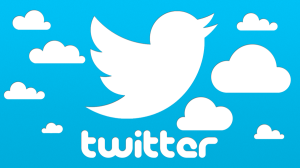Twitter has quickly become a new journalistic standard. Any journalist or media organisation that wants to be taken seriously and compete within the new attention economy of the internet needs to be engaging with Twitter in an intelligent and meaningful way (Bruns 2009). As Lee-Wright (2012) points out
“people are migrating to twitter feeds and other news aggregators that supply the news they want.”
I must admit that I too have become increasingly reliant on Twitter as a source of current global, local, and special interest news. I have often wondered whether such heavy reliance on a social media platform for news journalism is really advisable. Khorana (2014) lists 5 criteria for evaluating a news source in a global media landscape, these are: Variety of views; cultural bias; story structure; backgrounds of interviewees; and the gender, ethnicity and organizational positioning of the reporter. Using these criteria I will examine Twitter and attempt to answer the question, ‘does Twitter make a good news source?’

Image sourced from here
There are two aspects to what kind of views get represented on an individual’s Twitter feed. First of all, the main feed is made up of all the Tweets and Retweets posted by the accounts I follow, updated in real time and displayed in reverse chronological order; which forms a kind of perpetual, custom newspaper that’s tailored to your specific wants and interests (Johnson 2009). This is tricky to assess because the variety of views you receive as an individual here is based largely on your own choices and understanding of who you ought to follow. With so many users there is basically an infinitely vast variety of views, it’s just that it falls to the individual user to determine which views will be heard, whether they are aware of this or not. Arguably the same issues crop up in relation to cultural bias, story structure, backgrounds of interviewees, etc. because Twitter essentially allows for all these different voices to be heard in arguably equal ways, so it then falls on the users to question these criteria based on each of their followed accounts.
What falls outside of the users control is “trending topics”. According to the Twitter (2010) blog
“Twitter Trends are automatically generated by an algorithm that attempts to identify topics that are being talked about more right now than they were previously. The Trends list is designed to help people discover the ‘most breaking’ breaking news from across the world, in real-time. The Trends list captures the hottest emerging topics, not just what’s most popular.”
So can this algorithm have biases? Absolutely. For starters the trending topics clearly favour events that are gaining a lot of attention in a short space of time “right now”. This means that on mass, smaller opinions or issues that don’t fit within this event may fall by the wayside. Additionally the emphasis on “right now” with trends means that even big events might come and go from the trending column quite quickly, giving them a transient quality that might render events invisible to those who are in different time-zones or keep different work hours (Wilson 2012).
By design, on aggregate Twitter has allowed and enabled certain information and hyper-current news content to be shared in a way that legacy media simply can’t, see examples like #Euromaidan in Ukraine (Bohdanova 2013). But all news media, journalists, curators, aggregators, and algorithms simply must have biases, because without bias the news would simply be an overwhelmingly constant list of unfolding events that would become impossible to make any sense of. But being aware and critical of the biases in news is important to make sure we are getting a complete and more honest picture of the world and the events that take place in it. Do I think Twitter is a good source of news? Yes. Does it have biases and weaknesses? Absolutely. I hope this post gives you at least some understanding as to how these biases and weaknesses might manifest based on the design of the platform itself and the nature of the individuals using it.
References
Bohdanova, T 2013, ‘How Internet Tools Turned Ukraine’s #Euromaidan Protests Into a Movement’, Global Voices, 9 December, viewed 2 October 2014 http://globalvoicesonline.org/2013/12/09/how-internet-tools-turned-euromaidan-protests-into-a-movement/
Bruns, A 2009, ‘News Blogs and Citizen Journalism: New Directions for e-Journalism’, viewed 2 October 2014 https://moodle.uowplatform.edu.au/pluginfile.php/245673/mod_resource/content/1/Bruns%2C%20A.%20-%20News%20Blogs%20and%20Citizen%20Journalism.pdf
Johnson, S. 2009, How Twitter Will Change The Way We Live, Time Incorporated, New York, 5 June, viewed 2 October 2014 https://moodle.uowplatform.edu.au/pluginfile.php/245672/mod_resource/content/1/Johnson%20-%20How%20twitter%20will%20change.pdf
Khorana, S 2014, ‘Who Counts in Global Media? News Values’, powerpoint slides, BCM111, University of Wollongong, viewed 2 October 2014 https://moodle.uowplatform.edu.au/mod/resource/view.php?id=199662
Lee-Wright, P 2012, ‘News Values: An Assessment of News Priorities Through a Comparative Analysis of Arab Spring Anniversary Coverage’, JOMEC Journal, viewed 2 October 2014 https://moodle.uowplatform.edu.au/pluginfile.php/260151/mod_resource/content/1/Week%208_Lee-Wright.pdf
Twitter, 2010, ‘To Trend or Not to Trend…’, Twitter Blog, 8 December, viewed 2 October https://blog.twitter.com/2010/trend-or-not-trend
Wilson, R 2012, ‘Trending on Twitter: A Look at Algorithms Behind Trending Topics’, Ignite Social Media, 3 December, viewed 2 October 2014 http://www.ignitesocialmedia.com/twitter-marketing/trending-on-twitter-a-look-at-algorithms-behind-trending-topics/
I like the way you’ve started your post with a question its intriguing and makes me any to read more. You write particularly well and the topic is easy to follow. Great use of sources including course material and ones you have sourced yourself. You give a great breakdown of Twitter listing both pros and cons of this developing news source for journalism today! I too grab a lot of my news from my Twitter newsfeed particularly after rejoining due to the digc202 assessments. It’s quick and easy however as just about anyone has access to a working computer today it’s a lot more susceptible to nonsense.